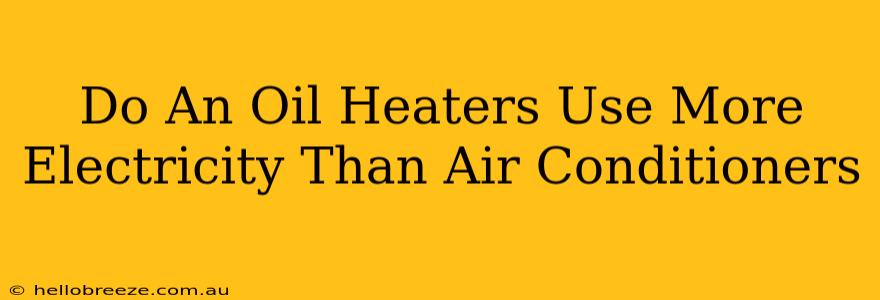Do Oil Heaters Use More Electricity Than Air Conditioners?
The question of whether oil heaters or air conditioners consume more electricity is a complex one, as it depends on several factors. It's not a simple "yes" or "no" answer. Let's break down the energy consumption of each to understand better.
Understanding Oil Heater Electricity Use
Oil-filled radiators, the most common type of oil heater, are generally considered to be relatively energy-efficient for space heating. They work by heating oil inside a sealed unit, which then radiates warmth into the room. This method is generally more efficient than using electric space heaters with exposed heating elements, which can lose heat more quickly.
However, the electricity consumption of an oil heater depends heavily on these factors:
- Heater Wattage: Higher wattage means more electricity used and faster heating. Check the wattage rating on your heater's label.
- Room Size: A larger room will require a more powerful (higher wattage) heater and therefore more electricity.
- Ambient Temperature: The bigger the temperature difference between the outside and desired inside temperature, the more electricity the heater will use.
- Insulation: A well-insulated room will retain heat better, reducing the amount of time (and thus electricity) needed to heat it.
Understanding Air Conditioner Electricity Use
Air conditioners, on the other hand, are designed to cool spaces. Their energy consumption also depends on various factors:
- Cooling Capacity (BTUs): Similar to wattage in heaters, higher BTU ratings mean greater cooling power and increased electricity consumption.
- Room Size: Larger rooms require air conditioners with higher BTU ratings.
- Ambient Temperature: The hotter the outside temperature and the cooler the desired indoor temperature, the more electricity the air conditioner will use.
- Insulation & Efficiency (SEER Rating): Well-insulated homes require less cooling, reducing energy consumption. The Seasonal Energy Efficiency Ratio (SEER) rating indicates the efficiency of the air conditioner; a higher SEER rating means less energy consumption for the same cooling capacity.
The Verdict: It Depends!
It's impossible to definitively say whether an oil heater or air conditioner uses more electricity. The energy consumption of both appliances depends significantly on their specifications, the size of the space being heated/cooled, the ambient temperature, and the level of insulation in the building.
In most cases, air conditioners tend to consume significantly more electricity than oil heaters due to the higher power requirements of compressors. However, prolonged use of oil heaters to maintain a comfortable indoor temperature over a long period could also lead to substantial electricity consumption.
Tips for Reducing Energy Consumption:
Regardless of whether you're using an oil heater or an air conditioner, you can reduce your electricity bill by:
- Improving insulation: This will help maintain the desired temperature, reducing the workload of both heating and cooling appliances.
- Using a programmable thermostat: Set your thermostat to automatically adjust the temperature based on your schedule.
- Regular maintenance: Ensure your appliances are clean and functioning efficiently. For air conditioners, regular servicing is crucial.
- Choosing energy-efficient models: Opt for appliances with high SEER ratings (for air conditioners) or lower wattage (for oil heaters).
By considering these factors and implementing energy-saving strategies, you can minimize electricity consumption regardless of which appliance you're using.

